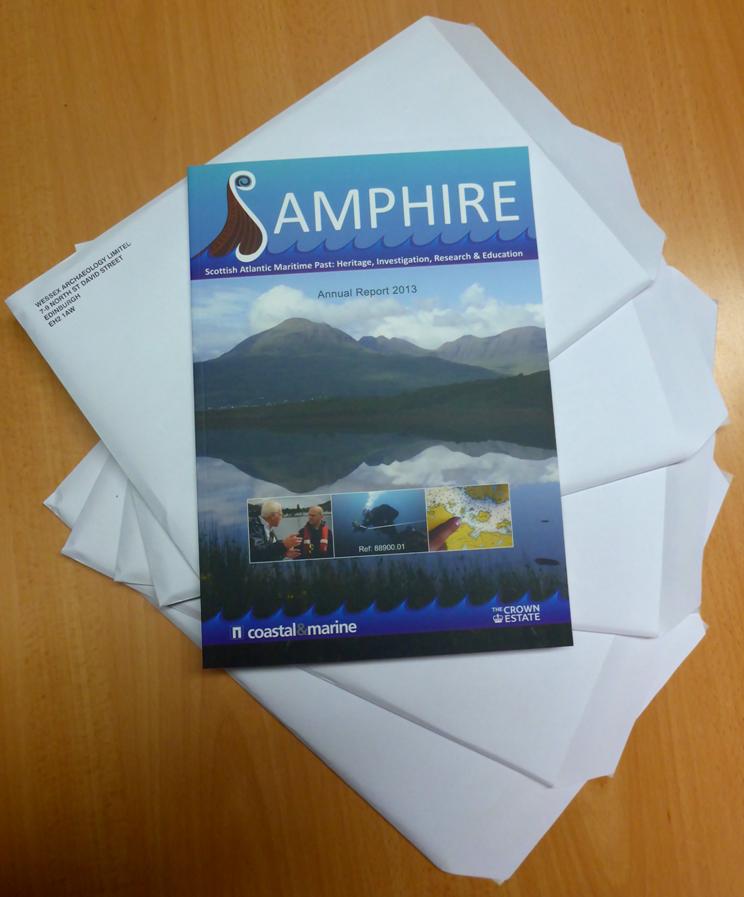Today the Project SAMPHIRE team has issued an official press release announcing the successful completion of the first season and the award of funding for 2014/2015. The Crown Estate has announced a further seventy-five thousand pounds over two years, allowing the Project SAMPHIRE team to continue their investigations on the west coast until the end of 2015. This takes the total amount to over a hundred thousand pounds.
Over the last year the SAMPHIRE team has been meeting with local people on the west coast – including harbour masters, coastguards and diving enthusiasts – asking them to share their knowledge of anything interesting or curious beneath the water. This has led to the discovery of more than 40 archaeological sites including wooden shipwrecks, cannons, ancient anchors, fish traps and more recent small fishing vessels. A digital copy of the report has now been released containing a detailed account of the discoveries.
Some of the most notable sites investigated over 2013 include:
- A series of metal-hulled shipwrecks near Loch Torridon from the 19th/ early 20th centuries;
- Wreckage from a large unidentified 19th century wooden ship wreck near Kinlochbervie Harbour and a similar site at Loch Laxford;
- A ballast mound in the shape of a boat near Lochinver of unknown date;
- Remains of two early 20th century steam drifters on the beaches of the Isle of Lewis and near Applecross;
- A large 17th or early 18th century anchor spotted in the garden of a house near Kinlochbervie which we were subsequently able to trace back to its discovery by a trawlerman who was able to give us coordinates for where it was found and which is thought to indicate a wreck site;
- A Napoleonic cannon on the main street of Shieldaig, well-known to locals but mistakenly thought to be from the Spanish Armada and previously unknown to archaeologists; and,
- Two World War II flying boats on the seabed near Oban.
This year the team plans to work with communities around Oban and the Inner Hebrides but is also asking the public to report any previously unrecorded marine archaeological sites from other parts of Scotland, particularly on the west coast.
The 90-page report has been distributed to individuals who made significant contributions to the project and also to community archives in Skye and the Highlands to complete the information exchange. The team’s findings will also be made available through the RCAHMS archive.
Project SAMPHIRE is led by WA Coastal & Marine in partnership with RCAHMS and Flinders University, and funded by The Crown Estate.

